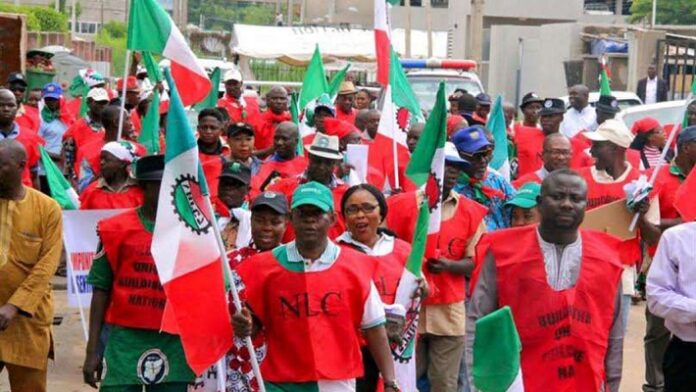BY JENNIFER EZIMAKOR
Following the promise by president of Nigerian Senate, Godswill Akpabio to enforce workers’ rights and advance wages that would benefit them, some workers have voiced their worry about the reliability of such promises.
Speaking through Eseme Eyibo, his Special Adviser on Media and Publicity at the May Day event, the senator had assured that the National Assembly is commitment to ensuring collaboration with the executive “to address workers’ concerns and create opportunities for growth.”
President Bola Ahmed Tinubu also shared similar sentiments, acknowledging his awareness of the challenges of the common Nigerian worker whilst promising to remain committed to implementing policies promoting job creation.
Yet for many workers, the promises seemed to be made along the usual rhetoric.
Civil servants across the country marked May Day, not just with celebrations, but with deep reflections on the state of the Nigerian worker; wages, welfare, and working conditions.
In seperate interviews conducted, many public sector employees shared frustrations of economic hardship, inflation, and unfulfilled promises.
Mrs. Nkechi Nwankwo, a civil servant in the education sector working at a public secondary school, described the current state of the Nigerian worker as “uncertain.”
While acknowledging that some changes, such as minimum wage increments have been introduced, she noted that many workers are yet to see the impact reflected in their general welfare.
“This delay is what is causing strain and uncertainty. Even those who received the adjustments are not really benefiting because the economic reality overshadows it,” she said.
When asked about the Nigerian Labour Congress (NLC), she was cautiously supportive.
“They have done a lot for the common worker, like strikes and protests, but the government has to listen. For example, that recent NELFUND implementation helped a lot of students and their families. May Day shouldn’t just be a celebration – it should be a platform to express ideas that are implemented, not thrown away,” she added.
Mrs. Linda Anthony, a Community Health Worker in the public health sector, painted an even more vivid picture of hardship, especially in healthcare.
“There was a strike at the Primary Health Centre where I work, and it affected everyone, both staff and patients. Even with the wage increase, the cost of living has also gone up. Inflation is eating everything up. That ₦70,000 minimum wage is not even enough to feed a family when you do the maths,” she lamented.
Despite the challenges, she continues working out of passion and commitment to humanity, a sentiment echoed by many in the public service.
On the NLC’s efforts, she offered tempered optimism.
“They’ve made efforts with social programs and advocating for adjustments to wages, but there is much more to be done,” she said.
She called on the government to prioritise improvements in healthcare infrastructure and retain staff in the public sector, acknowledging the hard work of the various labour unions and hoping for real action tied to the government’s promises.

